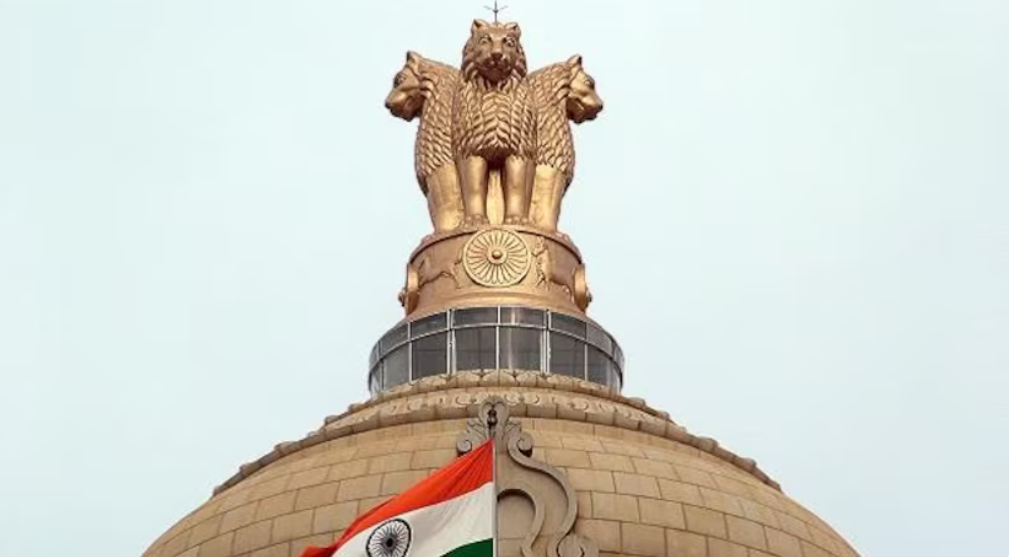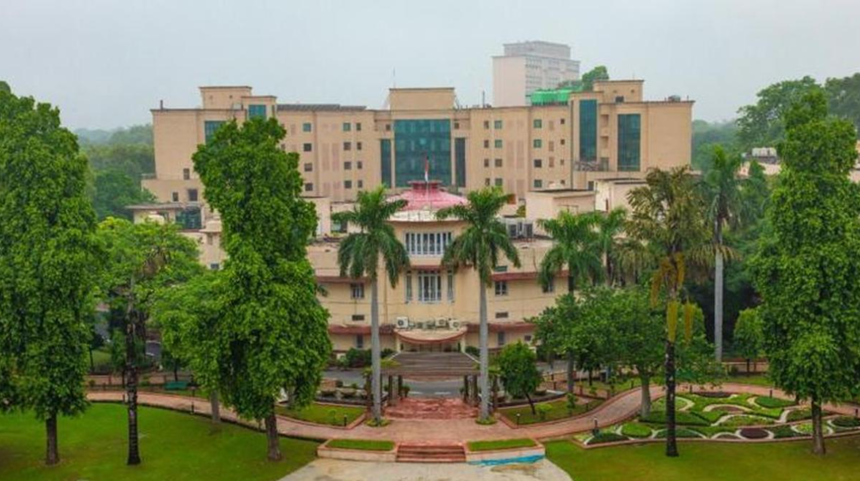UPSC Seeks Candidates for 45 Lateral Entry Posts in Ministries:-
UPSC Seeks Candidates, The Union Public Service Commission (UPSC) has announced the recruitment of 45 lateral entry posts across various ministries, marking another significant move in the Indian government’s efforts to bring in specialized talent from outside the traditional civil services cadre. This initiative, however, UPSC Seeks Candidates has sparked a fierce debate, UPSC Seeks Candidates with opposition parties raising concerns about the potential impact on reservations for Scheduled Castes (SCs), Scheduled Tribes (STs), and Other Backward Classes (OBCs). Prominent opposition leaders, including Congress president Mallikarjun Kharge and Bihar Deputy Chief Minister Tejashwi Yadav, have criticized the move, labeling it as a “well-planned conspiracy” and a “cruel joke” on the marginalized sections of society.
In this article, we will delve into the details of the lateral entry initiative, explore the arguments for and against it, and analyze the broader implications for India’s administrative and political landscape. We will also examine the concerns raised by the opposition and assess whether these criticisms are justified.
The Concept of Lateral Entry: A Brief Overview
Lateral entry refers to the recruitment of professionals from the private sector, academia, or other non-governmental organizations into government positions at senior levels, bypassing the traditional route of the Indian Administrative Service (IAS) and other civil services. This approach is designed to bring in specialized expertise and fresh perspectives to address the increasingly complex challenges faced by the government.
The concept of lateral entry is not new in India. It has been debated for decades, with proponents arguing that it can help bridge the gap between the skills required for effective governance and the capabilities of the existing civil services. The Narendra Modi-led government has been a strong advocate of lateral entry, believing that it can inject new talent and innovation into the bureaucracy.
In 2018, the government took a significant step by inviting applications for lateral entry into 10 joint secretary-level posts across various ministries. This marked the first time that professionals from outside the government were directly recruited to such senior positions. The move was met with mixed reactions, with some hailing it as a bold reform and others expressing concerns about its impact on the traditional civil services.
The latest UPSC notification for 45 lateral entry posts represents a continuation of this policy. The positions are spread across various ministries, UPSC Seeks Candidates including Finance, Commerce, Agriculture, and Health, and are at the level of joint secretary, director, and deputy secretary. The government has justified the move by stating that it needs experts with domain knowledge and experience to drive its reform agenda.
The Case for Lateral Entry
Proponents of lateral entry argue that the traditional civil services, while highly competent and experienced, may not always possess the specialized skills needed to tackle the complex and dynamic challenges of modern governance. They contend that bringing in professionals with expertise in fields such as economics, technology, health, UPSC Seeks Candidates and finance can enhance the quality of policymaking and implementation.
One of the key arguments in favor of lateral entry is the need for domain expertise. For instance, a professional with a background in finance may be better equipped to handle economic policymaking than a generalist civil servant. Similarly, UPSC Seeks Candidates experts in technology or healthcare can provide valuable insights into the formulation of policies in their respective fields.
Another argument is that lateral entry can bring fresh perspectives and innovation into the government. Civil servants, who typically spend their entire careers within the bureaucracy, may develop a certain institutional mindset. In contrast, professionals from the private sector or academia may offer new ideas and approaches that can lead to more effective governance.
Lateral entry is also seen as a way to address the shortage of talent in certain areas of the government. The Indian bureaucracy is known for its generalist approach, where officers are often rotated across different departments and ministries. While this system has its advantages, it may not always provide the specialized skills needed for specific roles. Lateral entry can help fill this gap by bringing in experts with the necessary qualifications and experience.
Furthermore, the government has argued that lateral entry is necessary to meet the growing demands of governance in a rapidly changing world. With the advent of new technologies, globalization, and complex economic challenges, UPSC Seeks Candidates the government needs professionals who can navigate these complexities and provide effective solutions.  for more information click on this link
for more information click on this link
Opposition’s Concerns: Reservations and Inclusivity
Despite the arguments in favor of lateral entry, the initiative has faced strong opposition, particularly from political parties representing marginalized communities. One of the primary concerns raised by the opposition is the potential impact on reservations for SCs, STs, and OBCs.
Congress president Mallikarjun Kharge has been vocal in his criticism, dubbing the move a “well-planned conspiracy” by the Bharatiya Janata Party (BJP) to rob marginalized communities of their rightful share in government jobs. According to Kharge, the lateral entry initiative bypasses the reservation system, which is designed to ensure representation for SCs, STs, and OBCs in government services. He argues that by recruiting professionals from outside the traditional civil services, the government is undermining the reservation policy and denying opportunities to candidates from these communities.
Tejashwi Yadav, Bihar’s Deputy Chief Minister, has echoed these concerns, calling the lateral entry initiative a “cruel joke” on marginalized communities. He has argued that the move is a deliberate attempt to exclude SCs, STs, and OBCs from senior positions in the government. Yadav has also questioned the transparency of the recruitment process, UPSC Seeks Candidates suggesting that it could be used to favor certain individuals or groups at the expense of others.
The opposition’s concerns are not without merit. The reservation system in India is a critical tool for ensuring social justice and representation for historically marginalized communities. The system is based on the principle that government jobs should reflect the diversity of the country’s population and provide opportunities for those who have been disadvantaged by centuries of discrimination.
By bypassing the traditional civil services recruitment process, which includes reservations, the lateral entry initiative could potentially reduce the representation of SCs, STs, and OBCs in senior government positions. This is a significant concern, given that these communities have historically been underrepresented in the higher echelons of the bureaucracy.
The Broader Implications of Lateral Entry
The controversy surrounding lateral entry goes beyond the issue of reservations. It also raises important questions about the future of India’s civil services and the nature of governance in the country.
One of the key concerns is the impact of lateral entry on the morale of the existing civil services cadre. Civil servants undergo rigorous training and spend years working their way up the ranks. The introduction of lateral entry could be seen as undermining this process, UPSC Seeks Candidates leading to resentment among officers who feel that their career progression is being disrupted by the influx of outsiders.
There is also the question of accountability. Civil servants are bound by a code of conduct and are accountable to the government and the public. Professionals recruited through lateral entry, on the other hand, may not be subject to the same level of scrutiny. This raises concerns about the transparency and fairness of the recruitment process, UPSC Seeks Candidates as well as the potential for conflicts of interest.
Another issue is the potential for politicization of the lateral entry process. Critics have argued that the initiative could be used to bring in individuals who are aligned with the ruling party’s ideology or agenda, UPSC Seeks Candidates thereby compromising the neutrality of the bureaucracy. This could have serious implications for the functioning of the government and the implementation of policies.
On the other hand, supporters of lateral entry argue that it is a necessary reform to modernize the bureaucracy and make it more responsive to the needs of the country. They contend that the existing system is too rigid and bureaucratic, UPSC Seeks Candidates and that lateral entry can help inject new talent and innovation into the government.  for more information click on this link
for more information click on this link
Conclusion
The UPSC’s decision to recruit 45 lateral entry posts across various ministries has sparked a heated debate about the future of India’s civil services and the impact of such initiatives on marginalized communities. While the government argues that lateral entry is necessary to bring in specialized talent and address the challenges of modern governance, UPSC Seeks Candidates the opposition has raised serious concerns about the potential impact on reservations and the inclusivity of the recruitment process.
The controversy highlights the broader challenges of balancing the need for expertise and innovation with the principles of social justice and representation. As India continues to grapple with these issues, UPSC Seeks Candidates it is essential to ensure that any reforms to the civil services are implemented in a way that is transparent, fair, and inclusive.
Ultimately, the success of the lateral entry initiative will depend on how it is implemented and whether it can address the concerns raised by the opposition and other stakeholders. If done correctly, it has the potential to strengthen India’s governance and make the bureaucracy more effective and responsive. However, if not handled carefully, UPSC Seeks Candidates it could lead to further polarization and undermine the trust in the government’s commitment to social justice.
As the debate continues, it is crucial for the government to engage with all stakeholders, including political parties, civil society, and the public, to ensure that the lateral entry initiative is implemented in a way that benefits the country as a whole. UPSC Seeks Candidates Only by addressing the concerns and ensuring transparency and fairness in the recruitment process can the government hope to achieve its goal of bringing in the best talent while also upholding the principles of social justice and inclusivity. ALSO READ:- Rise in Militancy in North Kashmir Casts Shadow Over Border Tourism 2024






Clarte Nexive se distingue comme une plateforme d’investissement en crypto-monnaies de pointe, qui utilise la puissance de l’intelligence artificielle pour fournir a ses clients des atouts competitifs majeurs.
Son IA analyse les marches en temps reel, identifie les opportunites et execute des strategies complexes avec une exactitude et une rapidite inatteignables pour les traders humains, augmentant de ce fait les potentiels de profit.
TurkPaydexHub se differencie comme une plateforme d’investissement en crypto-monnaies innovante, qui met a profit la puissance de l’intelligence artificielle pour proposer a ses membres des atouts competitifs majeurs.
Son IA scrute les marches en temps reel, detecte les occasions interessantes et met en ?uvre des strategies complexes avec une finesse et une celerite inaccessibles aux traders humains, augmentant de ce fait les potentiels de rendement.
TurkPaydexHub se demarque comme une plateforme de placement crypto revolutionnaire, qui utilise la puissance de l’intelligence artificielle pour fournir a ses clients des avantages concurrentiels decisifs.
Son IA etudie les marches financiers en temps reel, identifie les opportunites et applique des tactiques complexes avec une finesse et une celerite hors de portee des traders humains, augmentant de ce fait les potentiels de rendement.